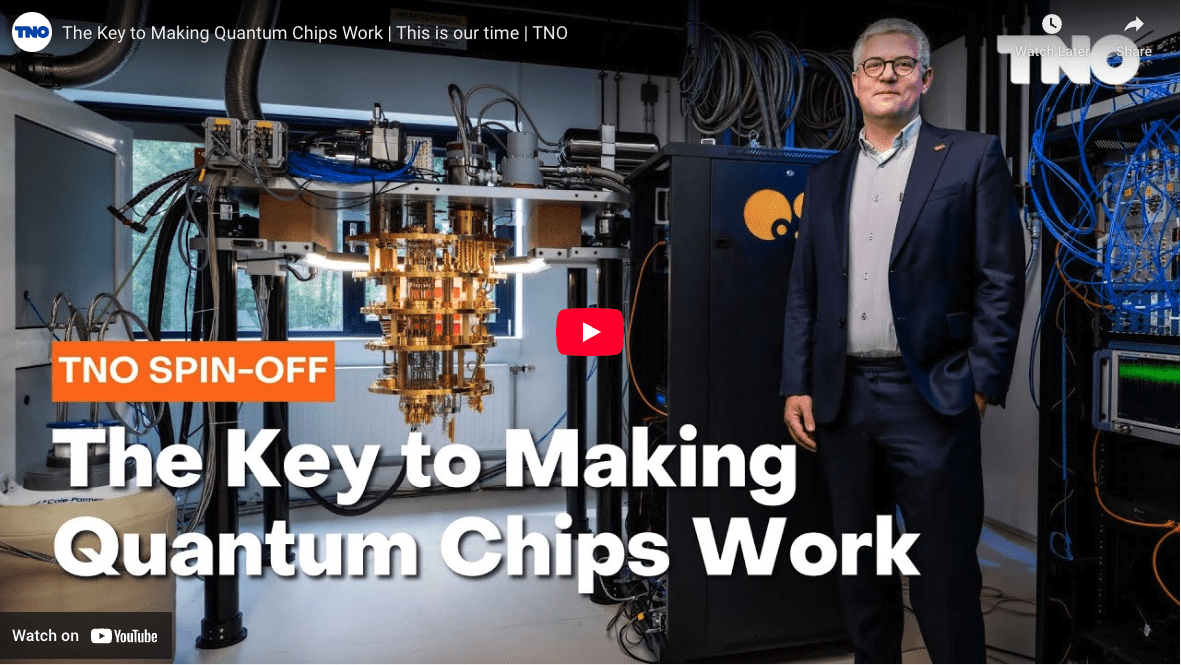In the spring of 2025, Orange QS, a Dutch spin‑off of the national research institute TNO, celebrated its fifth anniversary in Delft. The company, which began with a handful of founders and a modest laboratory, now boasts a team of more than thirty specialists and a portfolio of test solutions that are becoming essential for every quantum‑chip developer. The celebration, marked by a video from Managing Director Garrelt Alberts, was a moment to thank investors, customers and the wider Delft ecosystem that have helped turn a niche idea into a global contender.
From Five to Thirty: A Team Built on Mastery and Adaptability
Orange QS grew from a five‑person start‑up into a multidisciplinary group that blends physics, electrical engineering and software development. “Our people are our best partners,” said co‑founder Amber in a clip shared by Innovation Quarter. The company’s culture, built on the values of mastery, adaptability, teamwork and honesty, has attracted talent from academia and industry alike. This mix has enabled Orange QS to iterate quickly on its flagship products and to keep pace with the rapid evolution of quantum hardware.
The firm’s product lines illustrate this progress. Orange QS MAX delivers full‑stack test equipment for manufacturers, offering end‑to‑end diagnostics from qubit coherence to readout fidelity. In contrast, Orange QS FLEX is a modular platform that lets research groups assemble bespoke R&D setups, combining measurement instruments with software tools tailored to specific qubit architectures. By catering to both industrial and academic audiences, Orange QS has positioned itself as a bridge between the two worlds.
The Quiet Engine of Quantum: Why Testing Matters
Quantum computers promise to solve problems that are intractable for classical machines, but their practical deployment hinges on the reliability of individual qubits and the circuits that link them. In the early days, developers struggled with high error rates and unpredictable behaviour. Orange QS’s focus on rigorous testing has helped to tame these uncertainties. By providing detailed diagnostics, the company enables chip designers to pinpoint failure modes, optimise fabrication processes and accelerate iteration cycles.
The importance of testing is underscored by the sheer scale of the challenge. Modern quantum processors can contain dozens, or even hundreds, of qubits, each operating at temperatures near absolute zero. Tiny variations in fabrication can lead to significant performance differences. Orange QS’s tools measure these variations with nanosecond precision, allowing manufacturers to calibrate and correct errors before the chips reach their end users. In a field where the cost of a single defective qubit can be substantial, such pre‑emptive validation is a game‑changer.
Investors, Ecosystems, and the Road to Global Leadership
Orange QS’s success would not have been possible without a strong financial backbone. The company counts a mix of venture capital and institutional investors among its backers, including Icecat Capital, Cottonwood Technology Fund, Qbeat Ventures, QDNL Participations and Innovation Quarter Capital. These partners provide not only capital but also strategic guidance and access to industry networks. “They give us the resources we need to build best‑in‑class equipment at scale,” said Alberts.
Beyond capital, Orange QS has benefited from a vibrant Delft ecosystem that blends academia, industry and public funding. Collaboration with local universities has fostered talent pipelines, while partnerships with Dutch and European research programmes have supplied grant money for joint projects. The company’s alignment with national initiatives such as the European Quantum Flagship has positioned it to tap into broader funding streams aimed at bolstering quantum technology across the continent.
Looking ahead, Orange QS plans to expand its test solutions to accommodate the next generation of quantum chips, which will feature higher qubit counts and more complex connectivity. The firm is also exploring software‑driven test automation, aiming to reduce the time from fabrication to validation. If these ambitions materialise, Orange QS could become the de‑facto standard for quantum‑chip testing worldwide, ensuring that the promise of quantum computing is delivered on time and on budget.
As the quantum race heats up, the quiet work of companies like Orange QS will be the foundation upon which the next wave of breakthroughs is built. Their focus on precision, reliability and collaboration may well determine which nations and companies emerge as leaders in the quantum era.

